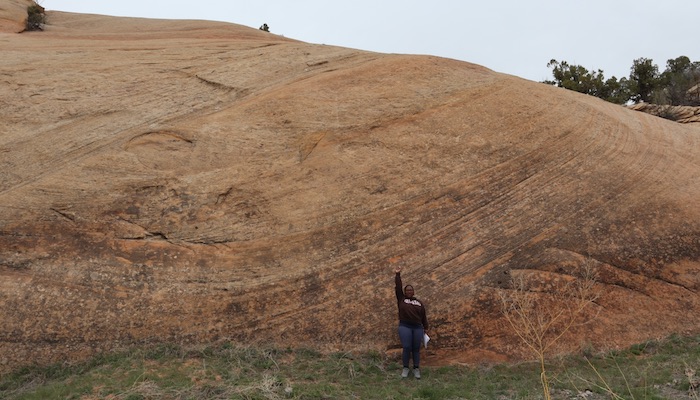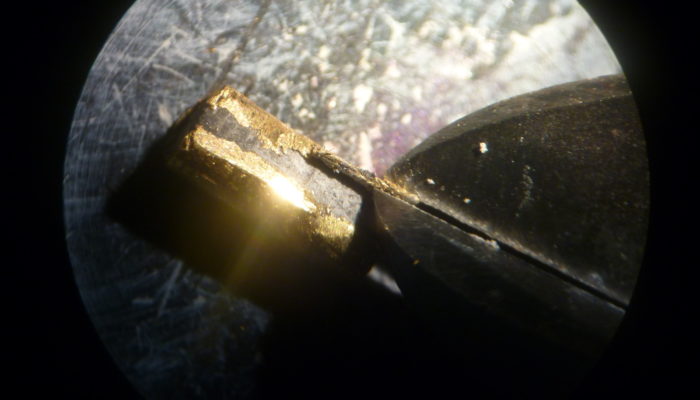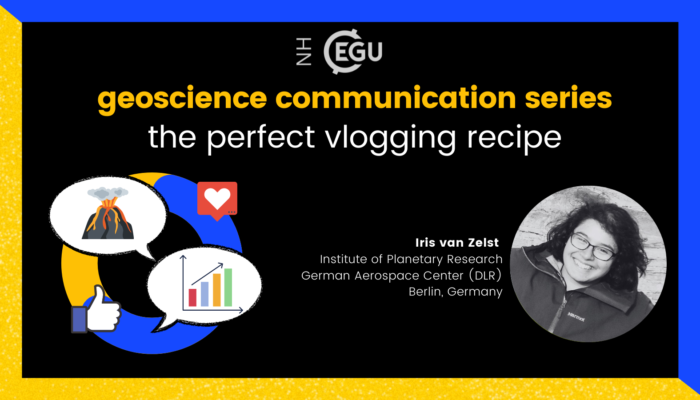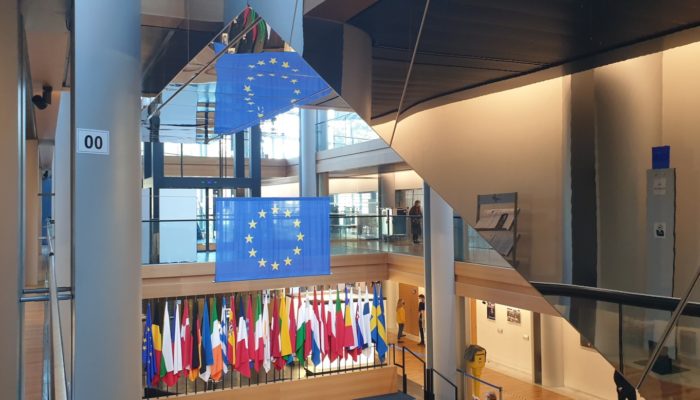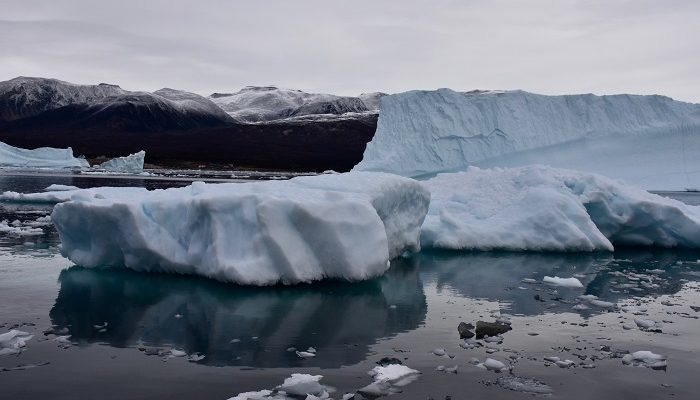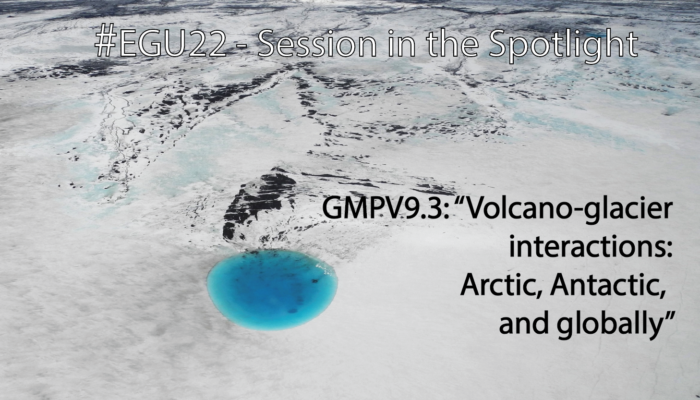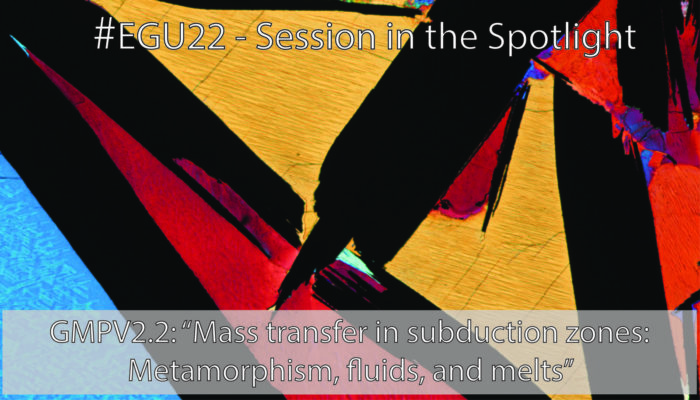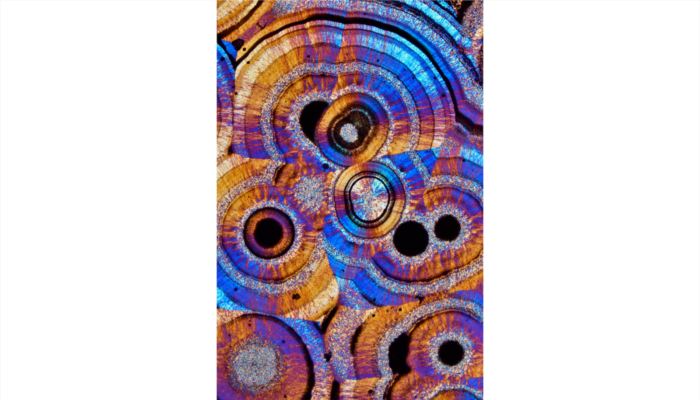It can be tough realising you’re not on the path you want to be on. This week, we have Leiaka Welcome from the Colorado School of Mines showing us how a change of heart led her to start her PhD journey. Currently on social media (Instagram Reel, TikTok), there is a video trend where users are editing a video of themselves in a scenario with an audio sound where you can hear a classic record scratc ...[Read More]
Tectonics and Structural Geology
Geomythology. Hawaii islands and the journey of Pele
Hotspot Theory How would you explain a series of volcanoes in the middle of the ocean such as the Hawaii, the Midway or the Canary islands? J.T. Wilson, in 1963, suggested they are formed by relatively small, long-lasting, and exceptionally hot regions of magma located beneath the Earth crust, so-called “hotspots” (Wilson, 1963). Firstly, he applied this idea to the Hawaiian Islands, but the conce ...[Read More]
GeoLog
Imaggeo On Monday: Artificial peridotite takes its gold coat off
Sometimes in order to test a theory about how processes work below the surface of the Earth, scientists need to recreate minerals found in very specific circumstances. This photograph was taken through a binocular microscope during a critical step of the creation of artificial peridotite: extraction of the artificial peridotite from its gold capsule. The sample is a little cylinder, 3 mm long with ...[Read More]
Natural Hazards
Geoscience communication series: the perfect vlogging recipe
Last year, we left you with an inspiring post about scientific blogging, where Giulia Roder, one of the authors of the EGU-NH blog, shared her ‘blogging survival kit’. Today we continue the series of EGU WEBINARS: Digitalk: online (geo)science communication exploring ‘the best vlogging recipe’ with Iris van Zelst, a researcher at the German Aerospace Center with a great passion for geoscience comm ...[Read More]
Geodynamics
Become the next Early Career Scientist Representative for the Geodynamics Division!
The Geodynamics division of the European Geosciences Union is looking for a new Early Career Scientist representative (ECS Rep)! Our current ECS Rep (Anna Gülcher) will be stepping down at the EGU General Assembly 2022, which means that the amazing opportunity is open for you to take on this role! In this blog, Anna talks about the tasks involved in being an ECS Rep, the advantages of taking on th ...[Read More]
GeoLog
GeoPolicy: What’s new in 2022?
2021 was yet another year of uncertainty, with many changes and disruptions to our plans, activities, and goals. EGU’s science for policy programme was no exception to this with the Science for Policy Pairing Scheme and annual Science for Policy Event taking a back seat. We hope that 2022 will not only bring new activities but also rekindle those that were put on hold as a result of the pandemic. ...[Read More]
Cryospheric Sciences
Climate Change & the Cryosphere: Fjord sediments reveal how melting ice impact the marine ecosystem
It is scary how fast the Greenland Ice Sheet is melting and how much freshwater it is discharging to the coastal areas around Greenland. This freshening is having a serious impact to coastal marine primary production, which is the foundation of the Arctic marine food web. Now, because of increased melting and freshwater discharge, we need to understand how coastal ecosystems will react. How will A ...[Read More]
Geochemistry, Mineralogy, Petrology & Volcanology
#EGU22 session in the spotlight: Volcano-glacier interactions: Arctic, Antarctic, and globally
The #EGU22 abstract submission is almost here – less than a week until it closes on January 12th at 13:00 CET. So it is time to wrap up our sessions in the spotlight with a last highlight – the interdisciplianry session GMPV9.3 “Volcano-glacier interactions: Arctic, Antarctic, and globally“. This session is organized by a diverse team consisting of Eva Eibl, Iestyn Barr, Ad ...[Read More]
Geochemistry, Mineralogy, Petrology & Volcanology
#EGU22 session in the spotlight: Mass transfer in subduction zones: Metamorphism, fluids, and melts
How to better start the new year than with submitting your abstract to #EGU22? In case you still did not find the right session yet, we have another great session in the spotlight today – GMPV 2.2 “Mass transfer in subduction zones: Metamorphism, fluids, and melts“, which focusses on the fundamental role fluid and melt expulsion from the slab plays in subduction zones. This inter ...[Read More]
GeoLog
Imaggeo On Monday: Geometric Microscape of Agate
“Crazy Lace” is an agate collected in Mexico, which offers great opportunities for aesthetic photomicrography. Here we see the common arrangement of fibers of chalcedony (microcrystalline quartz) in parallel bands alternating with black thin layers of Fe oxides. Polarized light photomicrograph, crossed polarizers and red tint plate. width 5.4 mm. Sample kindly provided by Denise M. Har ...[Read More]

